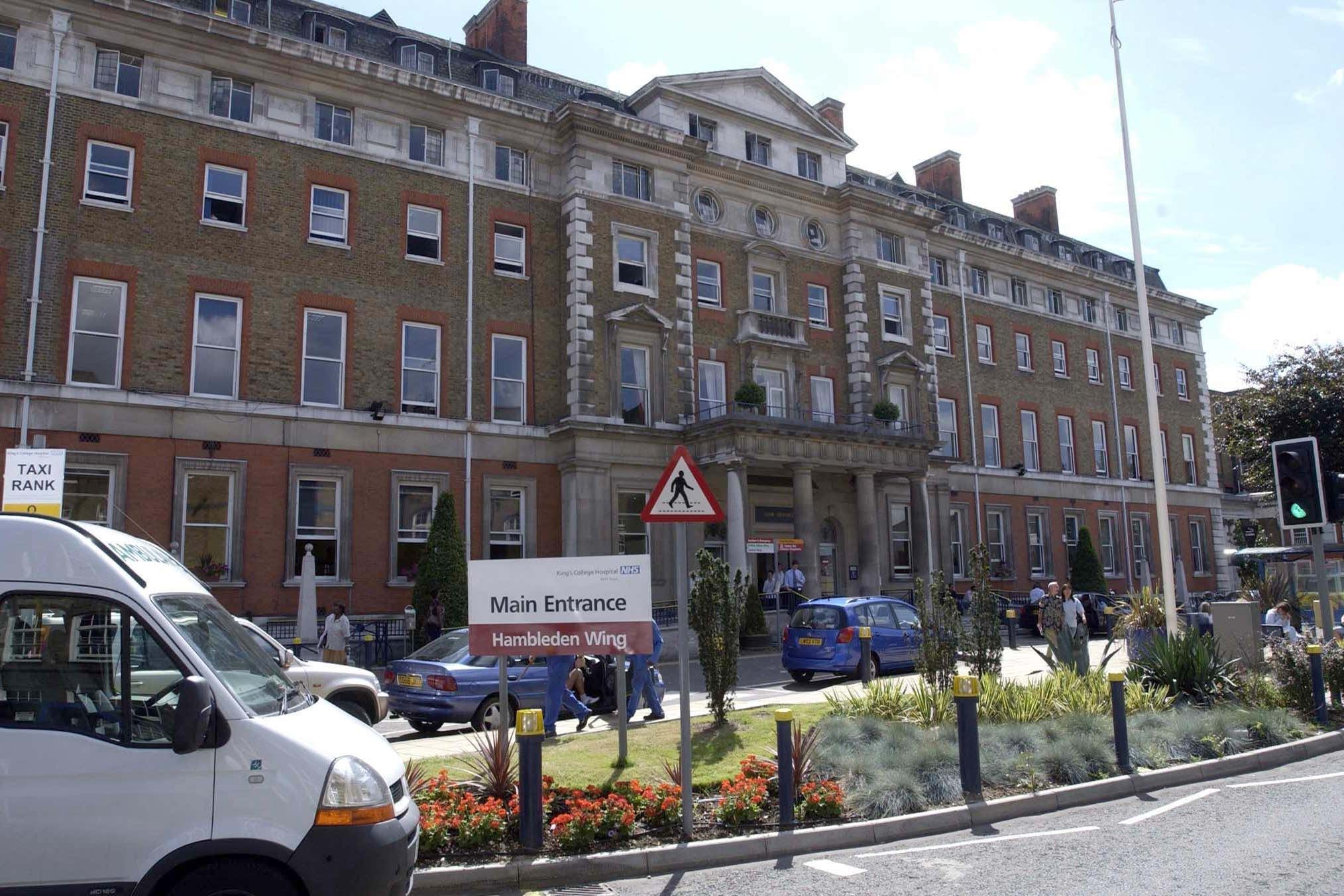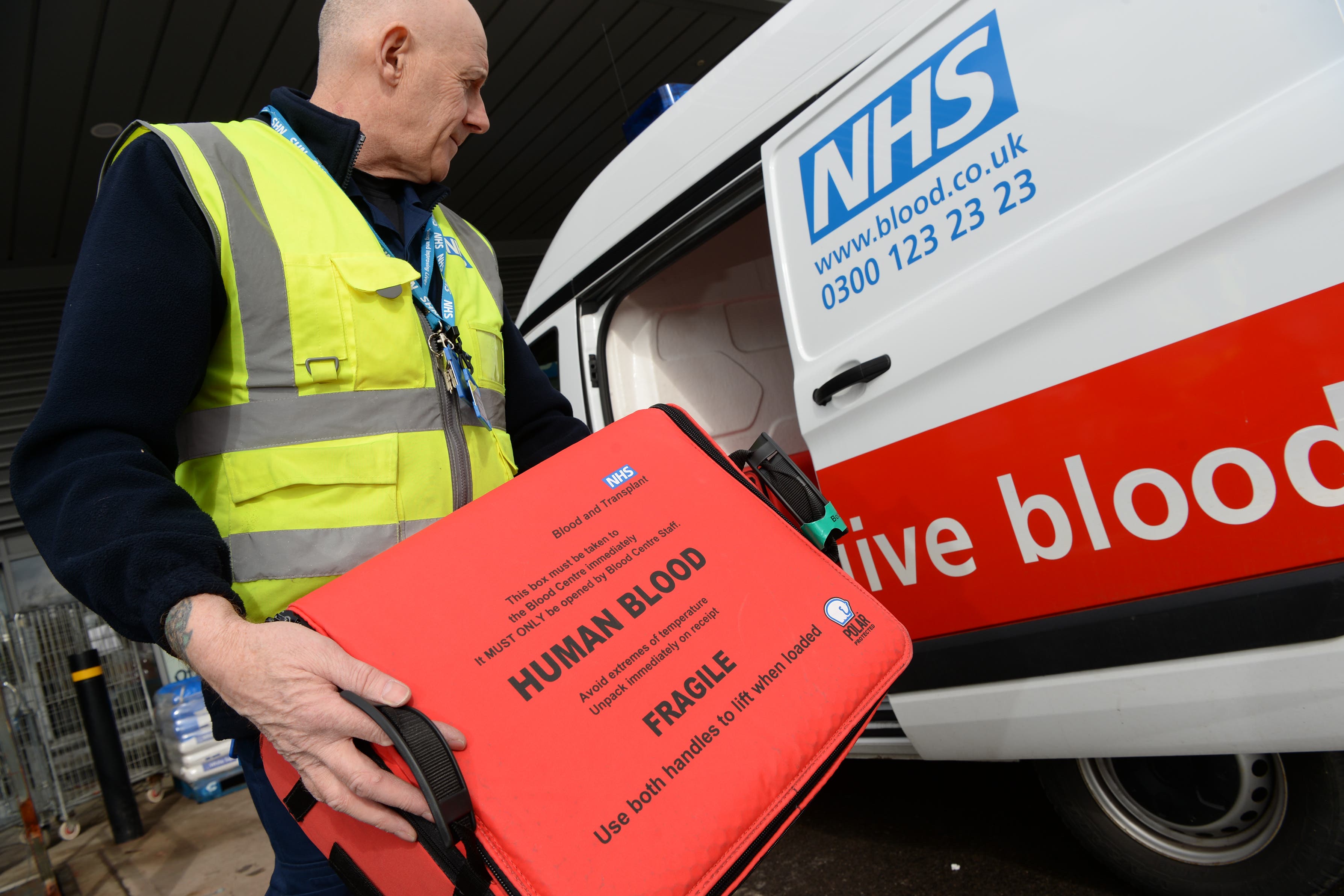‘My heart surgery was cancelled due to the NHS cyber attack – if I don’t have it soon, it’s terminal’
Exclusive: Russell Ashley-Smith, 81, needs open heart surgery otherwise he may only have up to two years to live

Your support helps us to tell the story
From reproductive rights to climate change to Big Tech, The Independent is on the ground when the story is developing. Whether it's investigating the financials of Elon Musk's pro-Trump PAC or producing our latest documentary, 'The A Word', which shines a light on the American women fighting for reproductive rights, we know how important it is to parse out the facts from the messaging.
At such a critical moment in US history, we need reporters on the ground. Your donation allows us to keep sending journalists to speak to both sides of the story.
The Independent is trusted by Americans across the entire political spectrum. And unlike many other quality news outlets, we choose not to lock Americans out of our reporting and analysis with paywalls. We believe quality journalism should be available to everyone, paid for by those who can afford it.
Your support makes all the difference.A heart patient has been left fearing for his health after his life-saving operation was cancelled due to a major cyber attack on London NHS hospitals.
Russell Ashley-Smith, 81, is waiting for complex open heart surgery at King’s College Hospital in Denmark Hill, south London, without which he may only have up to two years to live.
The Independent revealed more than 200 emergency procedures were cancelled due to the ransomware hack earlier this month.
Mr Ashley-Smith said: “I understand if I don’t [have the operation] it’s terminal. Doctors said you’ll live for one to two years with declining health and become less and less capable of doing things like walking.
“I would become more dependent on my wife, and more dependent on being taken somewhere by car if I wanted to go outside. I would be unable to make music – I play the cello and the piano – all the things I like doing and I don’t want to be a couch potato.
“I feel frustration because I play piano in church but I can’t tell people if I’m able to play this coming Sunday or the following Sunday because I don’t know when things will be restored.”

The pensioner, who lives in south London, requires two heart valve replacements and a coronary artery bypass to improve blood flow to the heart.
Mr Ashley-Smith, who was told he needed surgery in January, said he was “frustrated” at the “heartless” hackers who have targeted NHS patients who need care.
He added: “I feel really ashamed when I walk to the end of the road, which is slightly downhill, and catch a bus two stops up the hill. I’ve never done it before in my life, but I have to do it now.”
When she heard they could not operate, his wife, Gill Ashley-Smith, added: “I thought, ‘Oh dear. It’s going to be a long haul.’ We didn’t realise initially how disastrous it was. It’s a huge disappointment for Russell to be in hospital and then told he’s got to go home and nothing has happened.
“He’s feeling a bit more tired at times now, he hasn’t had the chest pains which took us to A&E again, but if that happens again where do we go? Which hospital do we go to? I’m hoping and praying I can do my best to support him in the long waiting game.
“We hope and pray they can find a way to fit him in somewhere before his situation gets worse.”

A King’s College Hospital NHS Foundation Trust spokesperson said: “We would like to apologise again to Mr Ashley-Smith for the postponement of his surgery, and to other patients whose care has been impacted by the cyber attack on our pathology provider, Synnovis.
“We are in contact with all affected patients and we are prioritising appointments and treatments according to clinical need. Any patients with concerns can contact their clinical team.”
As well as operations, thousands of patient hospital appointments had to be cancelled across Guy’s and St Thomas’ Foundation Trust and King’s College University Hospital NHS Foundation Trust due to the cyber attack.
GP practices in six south London boroughs had to cancel patients’ blood tests – and potentially bin thousands of samples – after hacker group Qilin were suspected to be behind the ransomware attack on pathology provider Synnovis.
Health leaders launched an urgent blood drive – particularly for type-O blood – across the country following a national shortage, as the ability for hospitals to quickly cross-check patients’ blood type for transfusion has been limited.
The NHS admitted on Friday it would take months for services to recover even once the attack has been resolved, as staff will have to rebook patients for appointments and operations.
Join our commenting forum
Join thought-provoking conversations, follow other Independent readers and see their replies
Comments